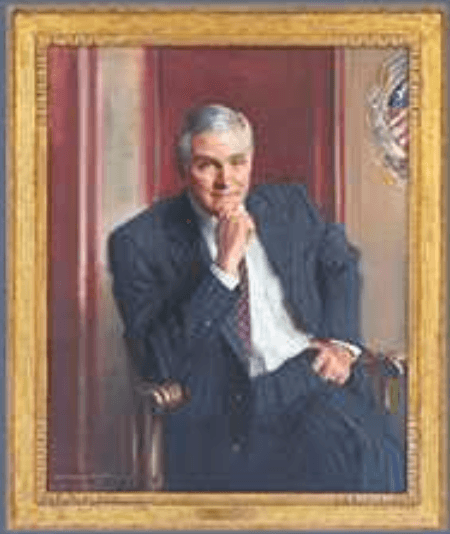
Robert M. Gates: The youngest DCI
Share
In the world of public service, few names stand out as prominently as Robert M. Gates. With a career spanning more than four decades, Gates left an indelible mark on the U.S. intelligence community and national defense. He got his start as an analyst and ended up leading some of the most critical institutions in American government.
Gates' journey began in 1966 when he joined the Central Intelligence Agency (CIA) as an analyst. He quickly made his mark, specializing in Soviet affairs and eventually finding himself at the negotiation table during talks between the U.S. and the Soviet Union on reducing strategic arms.
From 1974 to 1979, Gates served on the National Security Council staff, gaining a broader perspective on national security issues. In 1980, he returned to the CIA, this time as a national intelligence officer on the Soviet Union and as the executive assistant to DCI Stansfield Turner.
The early '80s saw Gates rise through the ranks, becoming the executive assistant to CIA Director William Casey and later taking on roles as director of the Office of Policy and Plans and chairman of the Executive Career Service. In 1982, he climbed further, taking the position of Deputy Director of the Directorate of Intelligence.
In 1983, Gates was appointed chairman of the National Intelligence Council, and by 1986, he became Deputy Director of Central Intelligence. When Director Casey underwent surgery for a brain tumor, Gates stepped up as acting DCI, showcasing his leadership and dedication.
In 1987, Gates was nominated by President Reagan to become the new Director of Central Intelligence, but he faced scrutiny over his involvement in the Iran-Contra affair and withdrew his nomination. However, he stayed on as Deputy Director under William H. Webster.
Gates' journey continued when, in 1991, President George H.W. Bush nominated him again, and this time he was confirmed as the 15th Director of Central Intelligence (DCI). He took office on November 6, 1991, in a time of significant change as the Cold War came to an end. Gates played a pivotal role in reshaping the CIA and the intelligence community to meet emerging challenges. He championed human intelligence (HUMINT) and advocated for recruiting and training intelligence officers.
Stepping down as DCI in 1993, Gates didn't retire from public service. In 2006, he returned to the spotlight, this time as Secretary of Defense under President George W. Bush. He continued in that role under President Barack Obama until his retirement in 2011.
His dedication to the nation earned him respect and recognition. In 2011, President Obama awarded Gates the Presidential Medal of Freedom during his retirement ceremony. And it didn't stop there. Gates took on roles as a university president, chaired independent panels, authored books, and even led the Boy Scouts of America.
With a 45-year career dedicated to public service, Robert M. Gates' legacy is one of leadership, commitment, and a tireless devotion to the security and well-being of the United States. He remains a respected figure in the realm of U.S. national security and foreign policy, a true exemplar of an American public servant.
